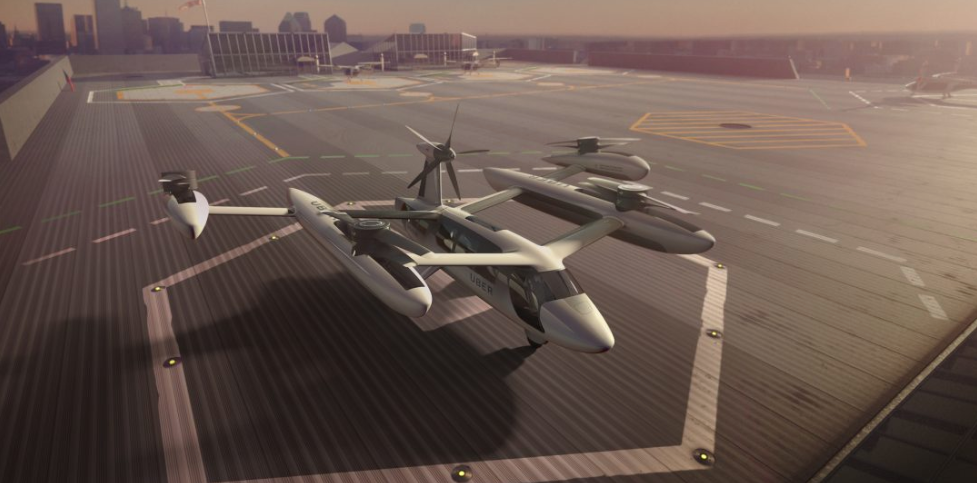Uber Is Launching a Flying Car Research Lab in Paris
Uber is continuing its quest to be more than just a rideshare company. It just announced that it's investing more money into its flying car program currently referred to as Uber Elevate.
Per the announcement, Uber will establish a research and development center in Paris dedicated to flying cars — investing 20 million euros in the center over the next five years. It will be called the Advanced Technology Center Paris and will be Uber's first R&D lab outside North American when it opens this fall. Workers at the center will help develop AI and other air traffic control systems that can be used when a large air taxi system comes into use.
France is known for its deep pool of talent in the aeronautics field and is home to Airbus headquarters. Amazon and NASA recently set up camp in the country to develop air traffic control systems for the coming wave of delivery drones.
École Polytechnique, a university in suburban Paris, will collaborate with Uber "on research across artificial intelligence, aviation and all-electric transport."
The announcement described potential urban air mobility ventures:
Initial projects will include: machine learning-based transport demand modeling, high-density low-altitude air traffic management simulations, integration of innovative airspace transport solutions with European aviation regulators such as EASA, and the development of smart grids to support future fleets of electric transport on the ground and in the air.

Uber hopes the center will accelerate its flying car program and get it closer to promised demonstration flights in 2020. The program hopes to develop autonomous flying "cars" that are purely powered by electricity and that would transport riders via air instead of the ground. The vehicles would be able to take off and land similarly to a helicopter, but with a much lower operating cost than a traditional VTOL aircraft.
Uber wrapped up its second Uber Elevate conference a few weeks ago where the company announced a new concept vehicle, an expanded partnership with NASA and a new agreement with the US Army. The program is still a long way from mass use — most of these aircraft are still in the early stages of development and its economics are questionable.
Airbus actually demonstrated a working electric VTOL aircraft in February and volocopter showed off its working prototype in January.
TPG featured card
at Capital One's secure site
Terms & restrictions apply. See rates & fees.
| 5X miles | Earn 5X miles on hotels, vacation rentals and rental cars booked through Capital One Travel |
| 2X miles | Earn unlimited 2X miles on every purchase, every day |
Pros
- Stellar welcome offer of 75,000 miles after spending $4,000 on purchases in the first three months from account opening. Plus, a $250 Capital One Travel credit to use in your first cardholder year upon account opening.
- You'll earn 2 miles per dollar on every purchase, which means you won't have to worry about memorizing bonus categories
- Rewards are versatile and can be redeemed for a statement credit or transferred to Capital One’s transfer partners
Cons
- Highest bonus-earning categories only on travel booked via Capital One Travel
- LIMITED-TIME OFFER: Enjoy $250 to use on Capital One Travel in your first cardholder year, plus earn 75,000 bonus miles once you spend $4,000 on purchases within the first 3 months from account opening - that’s equal to $1,000 in travel
- Earn unlimited 2X miles on every purchase, every day
- Earn 5X miles on hotels, vacation rentals and rental cars booked through Capital One Travel
- Miles won't expire for the life of the account and there's no limit to how many you can earn
- Receive up to a $120 credit for Global Entry or TSA PreCheck®
- Use your miles to get reimbursed for any travel purchase—or redeem by booking a trip through Capital One Travel
- Enjoy a $50 experience credit and other premium benefits with every hotel and vacation rental booked from the Lifestyle Collection
- Transfer your miles to your choice of 15+ travel loyalty programs
- Top rated mobile app


